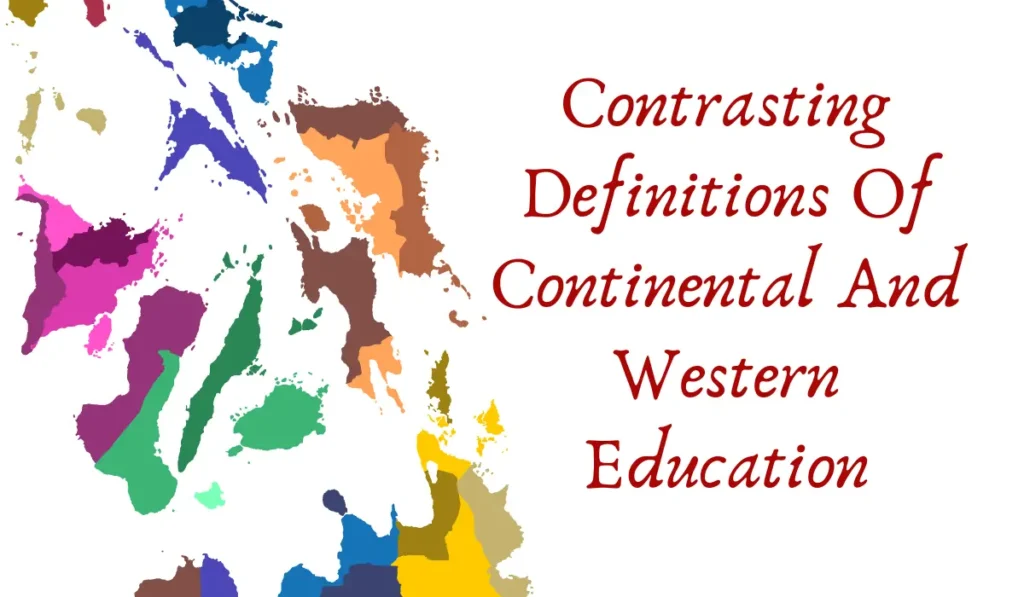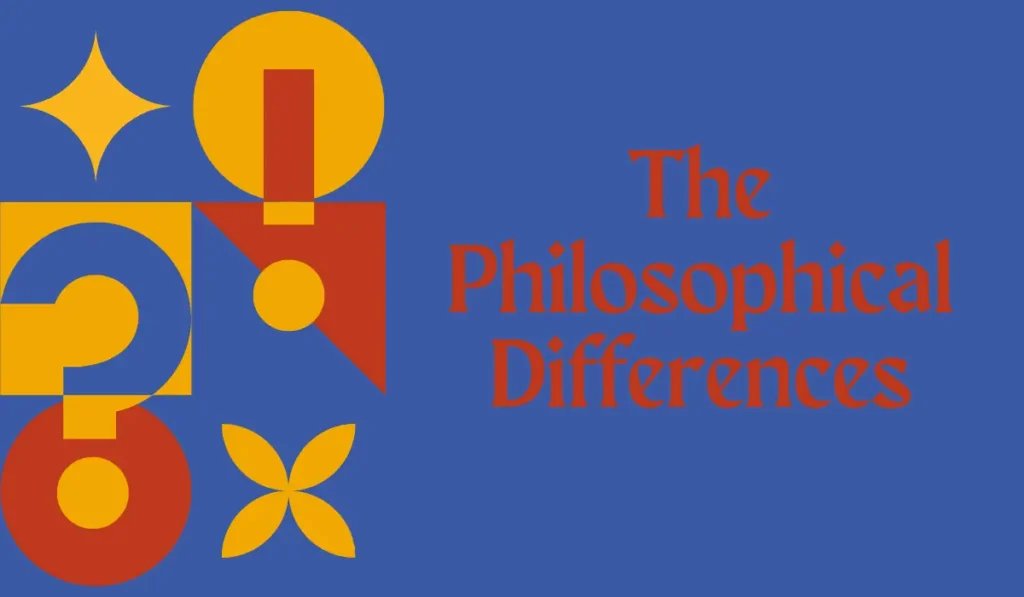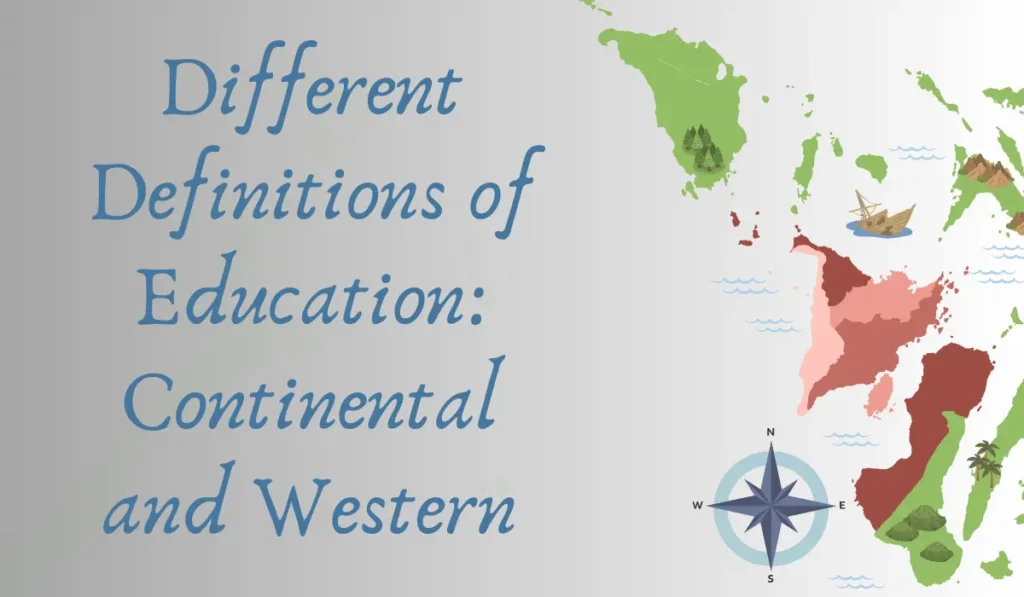Continental education refers to the development of moral character, while Western education emphasizes the acquisition of knowledge and skills. Education is a multifaceted process that has different meanings to people all over the world.
It is a broad term that encompasses not only the acquisition of knowledge but also the development of social, emotional, moral, and psychological skills.
Different ideologies have led to varied approaches to education. Continental and Western education are two concepts that offer contrasting definitions of the term.
In continental education, the emphasis is placed on developing students’ moral character. On the other hand, western education focuses primarily on the acquisition of knowledge and skills. This article explores the differences between these two types of education.
Contrasting Definitions Of Continental And Western Education

Education is a vital aspect of human life, and it differs based on the context and location. Globally, two main types of education exist: continental education and Western education.
Although these two types of education seek to educate people, they differ in approach, structure, and goals.
Definition And Explanation Of Continental Education
Continental education refers to the educational system that originated from continental Europe. This form of education focuses on developing students’ intellectual and critical thinking skills, rather than solely providing them with job-specific knowledge. Here are the following key points:
- Continental education prioritizes general education over vocational training.
- It emphasizes a wide-ranging curriculum that covers subjects such as philosophy, social science, and humanities.
- Continental education puts students’ intellectual and moral development at the forefront of education.
Definition And Explanation Of Western Education
Western education, on the other hand, is a type of education that originated from Western cultures, including North America and Europe. This form of education is centered around the development of career-specific skills that prepare students to enter the workforce.
Here are the following key points:
- Western education prioritizes vocational training over general education.
- It emphasizes career-specific knowledge and technical training.
- Western education is more focused on innovation and the practical application of knowledge.
Key Features Of Continental And Western Education
Both continental and Western education have unique features that differentiate them from each other. These key features are essential in the student’s learning process and have a significant impact on their future. Here are the following key points:
- Key features of continental education:
- Focuses on developing the student’s intellectual and critical thinking skills;
- Emphasizes general education over vocational training;
- Encourages students to explore different fields of study and to broaden their knowledge;
- Prioritizes understanding of fundamental philosophical concepts and encourages moral development.
- Key features of Western education:
- Focuses on developing career-specific skills;
- Emphasizes technical training to prepare students for the workforce;
- Encourages innovation and practical application of knowledge;
- Encourages entrepreneurship and business-focused education.
The definitions and differing key features of continental and Western education can help students decide which type of education system aligns with their interests and personal goals.
While continental education emphasizes general knowledge to develop a student’s intellectual abilities, western education is based on practical knowledge and career-specific training to prepare students for the workplace.
Regardless of the differences, both systems aim to develop the student’s skills and knowledge, opening doors to various possibilities and opportunities.
The Philosophical Differences

Education is the process of acquiring knowledge, skills, and values through various means. Although the end goal of education remains the same, the approach to education and the ideologies that underpin it vary across regions.
Philosophical Basis Of Continental Education
Continental education has its roots in the European continent. It emerged in the 19th century as a response to the social, political, and economic needs of society. Continental education believes in the power of the state to create a just and equal society.
Here are a few key points about the philosophical basis of continental education:
- Continental education emphasizes vocational training and practical education to prepare students for the workforce.
- It aims to create civic-minded citizens who are willing to participate in the democratic process.
- Continental education views education as a means to achieve social justice and equality.
Philosophical Basis Of Western Education
Western education, on the other hand, emerged from the need to create an education system that would meet the changing needs of society. It is generally associated with the educational systems of the United States and Great Britain.
- Western education emphasizes individualism and personal growth.
- It aims to create critical thinkers who can question authority and find their own path in life.
- Western education views education as a means to achieve economic progress and personal fulfillment.
The Impact Of Philosophical Differences On Education Systems
The philosophical differences between continental and Western education have significant implications for their respective education systems. Here are a few examples:
- Continental education typically offers more standardized curricula and rigid guidelines for teaching. In contrast, western education often offers more flexibility in curriculum and teaching methods.
- Continental education emphasizes vocational training and practical education. In contrast, western education often emphasizes liberal arts education and encourages students to explore a broad range of subjects.
- Continental education aims to create civic-minded citizens who are willing to participate in the democratic process. In contrast, western education aims to create critical thinkers who can question authority and find their own path in life.
Understanding the philosophical differences between continental and Western education is essential to understanding how their respective education systems operate.
While both types of education have their unique strengths and weaknesses, they both play a crucial role in shaping the minds and skills of students around the world.
Frequently Asked Questions
What Is Continental Education?
Continental education refers to the educational philosophy of Europe, which values a holistic approach to education that emphasizes the development of the individual. It emphasizes moral, historical, and cultural factors as the foundation of education.
What Is Western Education?
Western education is a pedagogical approach that originated in Europe and is influenced by classical Greek and Roman traditions. It emphasizes critical thinking, rationalism, individualism, and self-reliance. It is also known for its materialistic approach to knowledge, meaning that knowledge is a measurable and extractable commodity.
What Are The Differences Between Continental And Western Education?
The key difference between continental and Western education is their philosophical orientation. While continental education emphasizes the development of the individual in a holistic manner, western education stresses critical thinking and logical reasoning.
Conclusion
Education is not a one-size-fits-all concept, and the differences between the continental and Western definitions of education reflect this. While the continental definition emphasizes the role of education in shaping the individual in a holistic, moral, and societal sense, the Western definition stresses the acquisition of knowledge and skills as preparation for a career. Both definitions have their own merits and shortcomings. However, the increasing globalization of education means that it is important to explore alternative definitions that offer a more nuanced understanding of education, one that transcends cultural boundaries.


